Widows and the heart of god
My personal motivation for beginning this exploration was that, as I read the Hebrew Scriptures, I noted again and again God’s profound concern for widows (and orphans).
So much so
that, in that long-ago era God included it as one of the “must do’s” for anyone
who strives to live a faithful and just life. God even punished whole nations
who failed to care for the widows among them!
This
directive occurred so often and with such urgency that I decided to find out
what it’s really like for widows in today’s world. Maybe the Judeo/Christian God
doesn’t need to make it top priority in today’s enlightened world.
Instead, what I have learned has made me understand why God has such a heart for widows, and why God still expects us to translate His concern into concrete action, even in the 21st century.
widows and religions of the world
Let's take a brief glimpse into what each of the major world religions teaches about the treatment of widows.
Then I would invite you to explore with me further [scroll down below] what the Christian Scriptures have to say about this subject, because it’s there that I find a most compelling case for caring about them.
hinduism
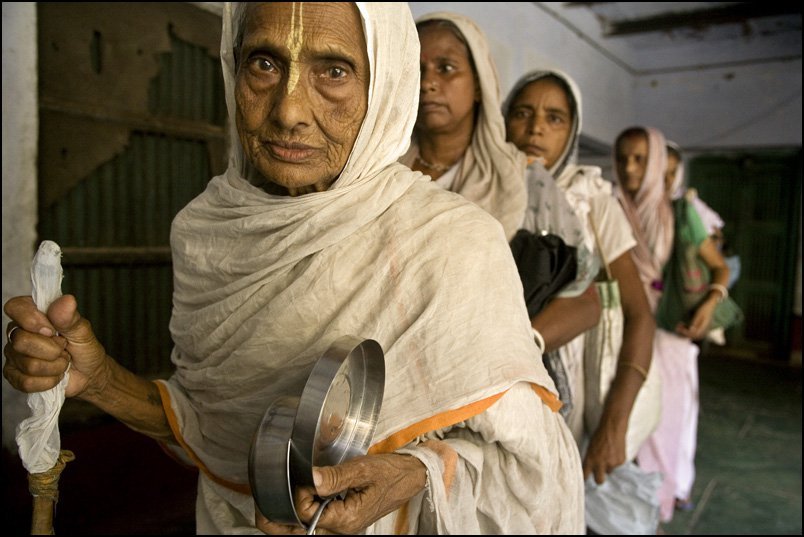
Hinduism has dominated every part of life in India for centuries, so it’s little wonder that society as a whole is so slow to shed the traditional way of treating widows. And it’s the terrible cruelty of that treatment that has made us aware of this group of people, and of the need for massive changes.
Whether or not it's explicitly taught in the Hindu Scriptures, the tradition is deeply rooted which says that a woman has rights, has a place in society, only if she is married. If she is widowed or divorced she ceases to be a woman. That makes every kind of abuse and discrimination possible. The widow is excommunicated from society and must spend the rest of her life in mourning for her deceased husband.
The concept of karma plays a part here, since the widow must be paying for some failure in a previous lifetime, otherwise widowhood wouldn’t have been her fate. But the upside is that if she faithfully mourns her late husband through the rest of her life, she should be able to expect a reincarnation into a better life.
sikh religion
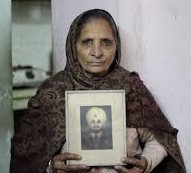
The Sikh religion is notable among ancient religions from the sub-continent, for its emphasis on the equality of men and women, and this carries over into their treatment of widows.
Siri Guru Amar Das Sahib, the third Sikh Guru, lifted the status of women and gave them equality with men.
He strictly prohibited practices such as sati (the burning of the wife on her husband's funeral pyre) and purdah (living in seclusion), and encouraged the remarriage of widows as a way of financial and social security, something which was not the established norm – then or now. See this Wikipedia article for more information.
islam
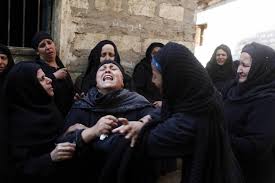
In Islam there is clear teaching about the treatment of widows.
From its very beginning "Islam stressed the care of widows along with other vulnerable groups, such as orphans, the poor and female infants. In Islam, taking care of widows is considered a very high form of charity.
"According to book 73, number 36, of the Sahih Bukhari collection of Muhammad's sayings (hadith), the Prophet once said: 'The one who looks after and works for a widow and for a poor person is like a warrior fighting for Allah's cause'.
"In the Quran, widows are grouped with orphans. The Quran is filled with commands to take care of the orphan and the widow -- both in the early Meccan surahs and the later Medinan surahs. The Quran, in surah 4, verse 19, also explicitly forbids what was a common abuse in Muhammad's time: a family "inheriting" a widow and forcing her to marry someone or do other things against her will."
https://classroom.synonym.com/the-treatment-of-islamic-widows-12085120.html
buddhism
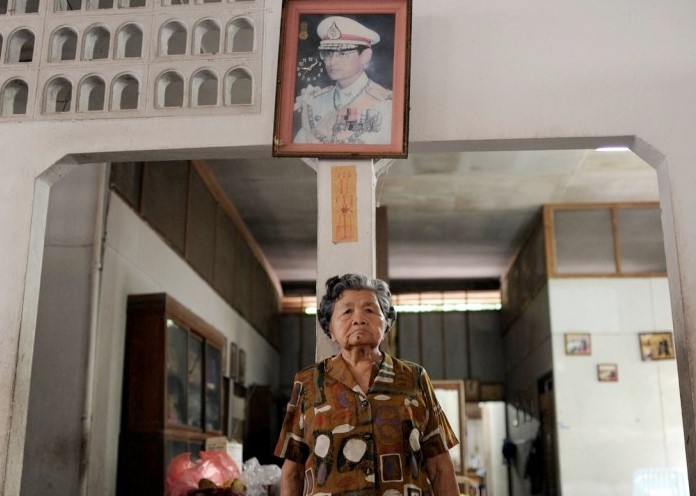
Buddhist teachings are not considered a religion, but rather a “science of the mind” (Dalai Lama), and they do not apparently give any guidance about treatment of widows as a specific group of people.
Rather, the various tenets
of Buddhism would help individuals [e.g. widows] in their response to the
reality they’re in, if they chose to practice them. This article by Andra Brosh PhD helps us understand the Buddhist perspective.
My comment would be that while these are beautiful teachings, they seem limited in their capacity to move society as a whole into changing the traditional treatment of widows in any country.
One author suggests that, in contrast to the rest of the society of the time, from the outset Buddhists were expected to give widows their full inheritance rights and not to discriminate against them in any way.
The position of widows in the society of the day was a sad one. The Buddhist teachings do not leave any room for widows to be abused or humiliated or even to be taken as a sign or symbol of ill women. The restriction of the widows by loss of privileges such as the right to inherit property and manage it, take part in domestic festivals etc. were not encouraged in Buddhist practice. Widows according to Buddhist thinking could remarry, and if they so desire, enter the religious Order as female monks (bhikkhunis). http://www.buddhismtoday.com/english/sociology/009-woman.htm
traditional african religions
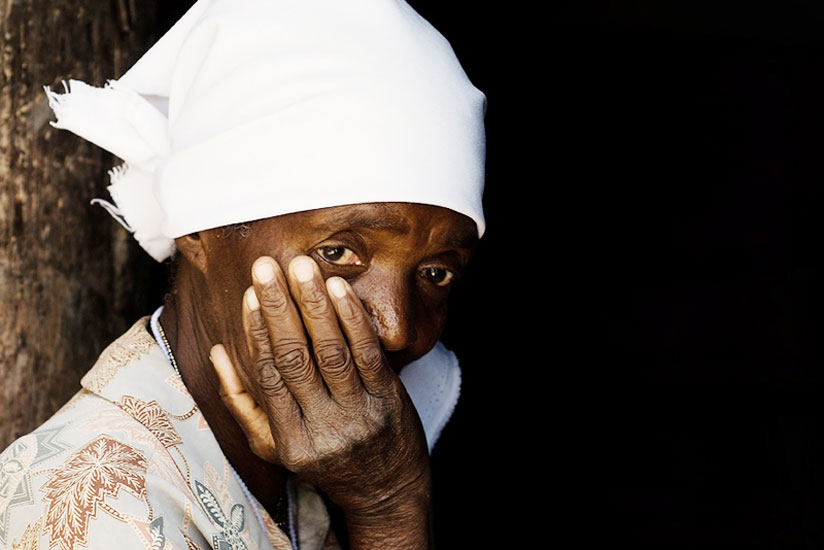
Traditional religions in Africa seem to have either taught a very cruel treatment of widows in their communities, or have at least condoned the practices.
Witch doctors and spiritual leaders seem to be prominent in forcing widows to submit to degrading and dangerous rituals, so it seems that their traditional religions believe that women become defiled and despicable simply by the fate of being widowed.
judaism
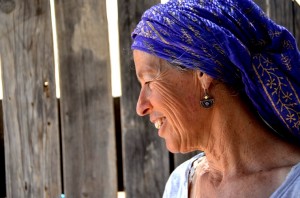
In the Jewish tradition, compassionate care for widows and orphans is taught very vigorously in the Torah and Midrash, with part of the tithe being allocated to them.
Jewish law stated that orphans were to inherit their father’s estate; the widow did not inherit, but there was a settlement on the estate from which the widow was to be able to maintain herself until she remarried.
Some religious authorities taught that a widow should not remarry, while others made no such restriction.
christian religion
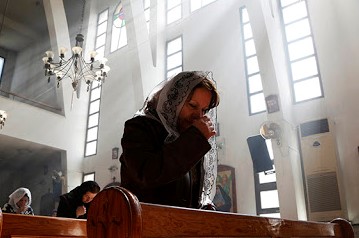
In the Christian tradition, building on the Hebrew scriptures, the early church was taught to be very considerate of widows and to provide for their wellbeing, although there is also a strong encouragement to younger widows to remarry.
In contemporary society in the Western world at least, it’s possible that Christians generally assume that there is adequate provision for widows to earn an income, or to be provided for through pensions, government assistance, etc. Maybe it’s an assumption that needs to be challenged.
THE BIBLICAL MOTIVATION
Read through the Hebrew Scriptures and note how many times God includes care for widows as a fundamental requirement for faithful living. That’s God’s very heart, expressing the intensity of His concern for these who seem to have always been the very lowest of the low in society’s eyes.
It was the Gospel, spread throughout the known world by early Christians, that taught a wholly new way of honouring women (including widows) and gave them dignity and personhood.
But have you ever heard a sermon in your place of worship about caring for widows?
Or heard of some nonprofit working to improve the condition of these women in other countries?
Probably most of us would have to say, “No”.
You might want to suggest to your faith leader that he/she do a presentation on widows for International Widows Day… perhaps a study on what the Bible [or your faith] teaches about them.
I’ve offered two Bible studies below; plus some links to YouTube videos (sermons) on the topic and links to a couple of challenging articles.
The Case for Caring for Widows in the Hebrew Scriptures
The Case for Caring for Widows in the New Testament
Sermons and Articles on Compassion for Widows
now what?
It seems that there's a disconnect between the teachings of many world religions, and the experience of most women who are widowed. Is anyone doing anything about it?
Fortunately, yes. I've discovered various ways in which people with a strong social conscience are fighting to change the treatment of widows, because they see it as a moral issue, or because the compassion of God won't let them ignore the destitute.
Let me introduce you to a few of the influencers, the justice seekers and the widows' champions who are building a world free of injustice and discrimination against widows.